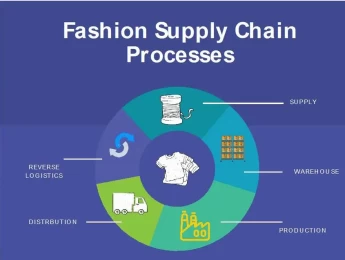Clinical research plays a crucial role in advancing medical knowledge and ensuring that new treatments are safe and effective. This course offers a structured introduction to how clinical trials are designed, managed, and monitored. It also introduces the regulatory, ethical, and operational aspects of clinical research in both academic and industry settings.
Whether you're new to the field or looking to expand your understanding, this training will help you grasp the essential concepts of clinical trial phases, protocol development, participant safety, data management, and regulatory compliance. It is a solid foundation for anyone interested in clinical research as a career or in supporting roles.
By the end of this course, participants will be able to:
- Understand the phases and structure of clinical trials.
- Identify the ethical principles and regulatory standards in clinical research.
- Discuss the roles and responsibilities of key personnel involved in trials.
- Explain how to design a clinical trial protocol and manage informed consent.
- Analyze how data is collected, stored, and monitored during trials.
- Recognize the importance of Good Clinical Practice (GCP) and safety reporting.
This course is ideal for:
- Pharmacy, medical, or life sciences graduates.
- Clinical research assistants or coordinators.
- Nurses and healthcare providers working on trials.
- Quality officers and regulatory staff.
- Anyone seeking to start a career in clinical research.
Participants will learn through a blended and engaging approach that includes instructor-led sessions supported by easy-to-follow visuals, allowing for clear understanding of key concepts. The course incorporates real-world case studies from clinical trial settings to provide practical context. To reinforce learning, participants will engage in practice quizzes and work with simplified protocol documents. Interactive discussions will explore ethical considerations and trial design principles, encouraging active participation and critical thinking. Additionally, learners will receive downloadable checklists, templates, and study aids to support their application of course content beyond the training.
Day 5 of each course is reserved for a Q&A session, which may occur off-site. For 10-day courses, this also applies to day 10
Section 1: Introduction to Clinical Research
- What is clinical research?
- Purpose and value of clinical trials.
- Differences between observational and interventional studies.
- Key stakeholders in clinical trials.
Section 2: Clinical Trial Phases
- Overview of Phase I, II, III, and IV trials.
- Purpose and timeline of each phase.
- Examples of trials in different phases.
Section 3: Trial Design and Protocol Development
- Core elements of a clinical trial protocol.
- Defining study objectives, endpoints, and methodology.
- Writing clear inclusion/exclusion criteria.
- Designing informed consent forms.
Section 4: Roles in Clinical Trial Management
- Principal Investigator (PI), Study Coordinator, CRA.
- Trial Sponsor responsibilities.
- Site selection and site initiation visits.
- Communication and documentation.
Section 5: Ethical and Regulatory Considerations
- Introduction to Good Clinical Practice (GCP).
- Institutional Review Boards (IRB) / Ethics Committees.
- Informed consent and participant rights.
- Reporting adverse events and maintaining transparency.
Section 6: Data Management and Monitoring
- Data collection methods (eCRF, paper-based, EDC systems).
- Data cleaning, validation, and analysis basics.
- Trial monitoring and quality control procedures.
- Common challenges in clinical data handling.
Section 7: Safety, Compliance, and Risk Management
- Pharmacovigilance overview and adverse event reporting.
- Managing protocol deviations and compliance issues.
- Audit readiness and inspection basics.
- Risk-based monitoring in clinical trials.
Section 8: Closing and Reporting
- Trial close-out procedures.
- Preparing the final study report.
- Publishing results and data sharing.
- Importance of transparency in clinical trials.
Upon successful completion of this training course, delegates will be awarded a Holistique Training Certificate of Completion. For those who attend and complete the online training course, a Holistique Training e-Certificate will be provided.
Holistique Training Certificates are accredited by the British Accreditation Council (BAC) and The CPD Certification Service (CPD), and are certified under ISO 9001, ISO 21001, and ISO 29993 standards.
CPD credits for this course are granted by our Certificates and will be reflected on the Holistique Training Certificate of Completion. In accordance with the standards of The CPD Certification Service, one CPD credit is awarded per hour of course attendance. A maximum of 50 CPD credits can be claimed for any single course we currently offer.
- Course Code IND5 - 172
- Course Format Classroom, Online,
- Duration 10 days










